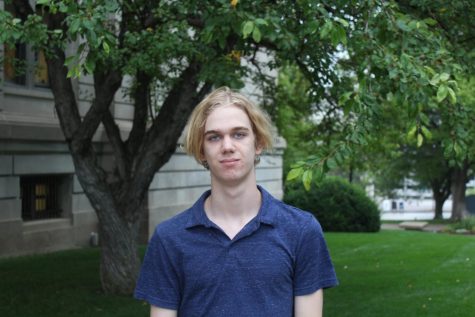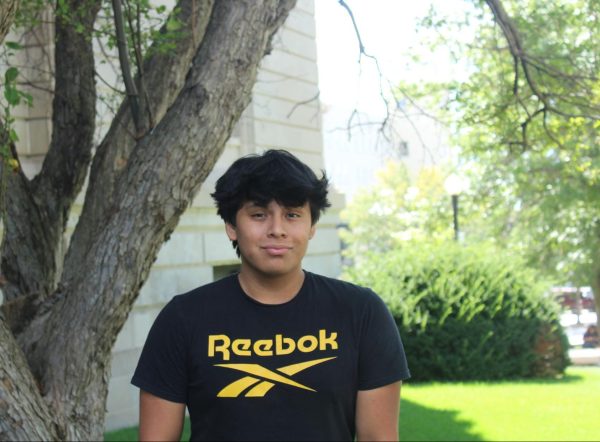Senior Sydney Westphal leads environmental club
February 15, 2019
Senior Sydney Westphal became engaged with the issue of environmentalism her junior year while taking IB Environmental Science. She said that Gass’ class inspired her to examine the human impact on the environment through both a global and local lens. This newly-found passion for environmentalism led her to look for ways to make Central students more aware of the issue and to reduce the ecological impact of the school. Thus, she created the Environmental Club last September.
“We don’t have a lot of members right now, but basically the goal is to make people aware of their actions and how that impacts the environment,” Westphal said.
Westphal originally created the club for her Honors Research Writing class and those who came were required to continue to come, but she later told members that they could decide for themselves if they wanted to participate. Although this decision naturally led to fewer people attending the meetings (today Westphal says around four or five people make it to most meetings), she says that it has made the meetings more engaging.
“Now people who come actually care, and they want to be educated,” Westphal said.
Meetings take a primarily collaborative approach to education.
“I ask what people are into, or what they want to know more about or be educated on, and then I go through and I look up articles or videos and then we basically have a Socratic seminar, or just a discussion, about the implications,” Westphal said.
The club also hopes to encourage Central to implement more environmentally conscious policies.
“When we came in a lot of us wanted to implement easy things to the Central system,” Westphal said. “Someone talked about composting, which we’re still working on- it’s a little difficult because it requires maintenance- but also I’m proposing this month something called Color Cycle, which Crayola just came out with.”
Color Cycle, Westphal said, is “a program that allows for schools who register to collect old markers… and then someone would volunteer, NHS or Environmental Club, would go and collect all these markers and put them in a bigger box. Then you’re able to ship it to Crayola with no fee and they’ll send them to their facilities and they’ll be remade into new markers.”
Though Westphal is a senior, she hopes that the Environmental Club will continue to grow after she leaves.
“I’d like it to go bigger,” Westphal said. “Right now we’re kind of in the science closet because we’re such a small club. I’d like to see it next year maybe have enough people to grow into a bigger classroom.”
According to Westphal, a political climate in which the facts of environmental science are considered up for debate, and environmental protections are being neglected or actively stripped away, it is more important than ever to become educated and involved with the protection of the environment.
“It’s extremely important to be educated on how you affect the environment and how you can change your lifestyle or change your habits just a little bit to save so much,” Westphal said.














